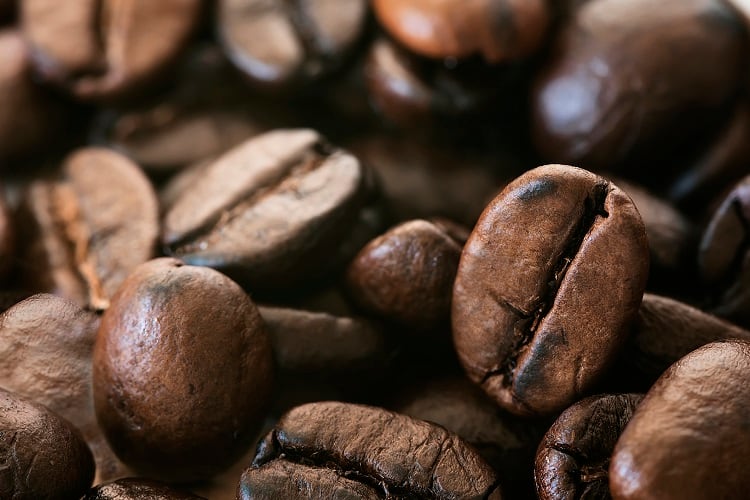A group of international researchers has examined the relationship between coffee consumption and bodyweight in men and women of all ages.
Led by Dr Lee Smith from Anglia Ruskin University, the study found a ‘significant association’ between higher coffee consumption and lower DXA-measured adiposity – a condition of being severely overweight or obese.
And interestingly, results revealed a gender difference in this association.
Best outcome: women who drink two or three cups a day
The study compared data from the National Health and Nutrition Examination Survey, organised by the Center for Disease Control in the US, with the amount of cups of coffee drunk per day. Total body fat percentage and abdominal fat was also examined.
According to the findings, women who drank two or three cups of coffee a day had lower total body and body fat than those who drank less.
Specifically, women aged 20-44 who drank two or three cups had the lowest levels of body fat – 3.4% lower than those who did not consume coffee. Women aged 45-69 who drank four or more cups had a total body fat percentage 4.1% lower than non-coffee drinkers.
Overall, looking at women of all ages who drink two or three cups of coffee per day, the average total body fat percentage was 2.8% lower.
In men, however, the relationship was found to be less significant. Compared to men who do not consume coffee, men aged 20-44 who drank two or three cups per day had 1.3% less total fat and 1.8% less abdominal fat.
What is it about coffee?
The findings appeared to by unaffected by whether those analysed were smokers, or suffered from chronic diseases. And results remained consistent even if the coffee consumed was caffeinated or decaffeinated – ruling out the study’s potential link between caffeine and bodyweight.
“Our research suggests that there may be bioactive compounds in coffee other than caffeine that regulate weight and which could potentially be used as anti-obesity compounds,” explained the study’s senior author, Dr Smith.
Indeed, previous research has indicated that potential bioactive compounds in coffee and tea could facilitate the fat metabolism in our body, and ultimately reduce body fat storage.
It is important, however, to interpret the study’s findings in light of its limitations, Dr Smith stressed. “The study was at a specific point in time so trends cannot be established. However, we don’t believe that someone’s weight is likely to influence their coffee consumption.”
The researchers also managed to rule out socio-economic associations with coffee consumption and bodyweight, research fellow at the Washington University School of Medicine’s Center for Human Nutrition, Chao Cao, explained.
“We cannot deny that foods themselves and socio-economic status both have effects on our body health, particularly obesity/body fat. In order to address this issue, we adjusted these potential confounders in our analyses, which means we considered the household income, education levels, and race/ethnicity when we make the conclusion,” he told this publication.
“Our results show that even after considering sociodemographic characteristics and other lifestyle behaviours, higher coffee consumption is linked to lower body fat levels in women. We also conducted the subgroup analysis and found that these associations kept consistent across all subpopulations. such as race/ethnicity, whether they have chronic diseases, etc.
“In general, higher consumption was linked to lower body fat levels, particularly abdominal fat, in women, regardless of the socioeconomic status and health conditions.”
Should we be drinking more coffee?
So what role could coffee play in combatting obesity? According to Anglia Ruskin University’s Dr Smith, coffee could be considered a useful weapon in the fight against excess bodyweight.
“It could be that coffee, or its effective ingredients, could be integrated into a healthy diet strategy to reduce the burden of chronic conditions related to the obesity epidemic.”
Cao similarly stressed the importance of a healthy diet strategy – rather than focusing too much on a single food ingredient.
“We encourage people to add coffee in their menus as well as other healthy foods. Also, the effects of diet on our body health need a period to show up. We do not wish a person to drink tons of coffee in one day to achieve weight loss,” he told this publication.
“We also adjusted so many lifestyle behaviours and other nutrition factors (added sugar and milk in coffee) in our analyses. We wish people can adopt a healthy lifestyle, such as physical activity, less sitting, more healthy foods and additionally adding coffee intake with less sugar to lose their weight.”
Source: The Journal of Nutrition
‘Regular Coffee Consumption Is Associated with Lower Regional Adiposity Measured by DXA among US Women’
Published 3 May 2020
DOI: https://doi.org/10.1093/jn/nxaa121
Authors: Chao Cao, Qinran Liu, Mohammad Abufaraj, Yunan Han, Tianlin Xu, Thomas Waldhoer, Shakrokh F Shariat, Shengxu Li, Lin Yang, Lee Smith





